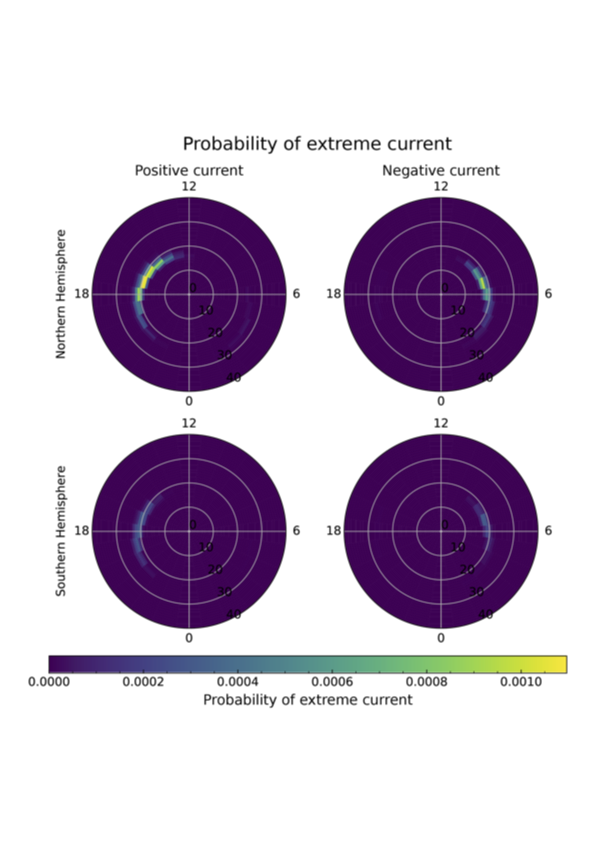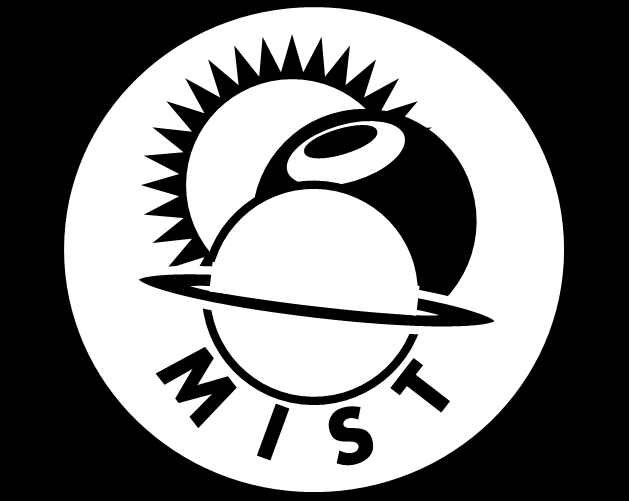MIST
Magnetosphere, Ionosphere and Solar-Terrestrial
Distributions of Birkeland current density observed by AMPERE are heavy‐tailed or long‐tailed
Distributions of Birkeland current density observed by AMPERE are heavy‐tailed or long‐tailed
By John Coxon (Northumbria University)
Electric currents flow above Earth’s surface in the ionosphere; along the magnetopause; across the magnetotail; and in the same region of space as the radiation belts. These currents are all closed through currents flowing along the magnetic field lines in near-Earth space forming one large current circuit; the currents flowing along the field lines are known as field-aligned currents, or as Birkeland currents.
Birkeland currents are, therefore, the currents that communicate impacts from the solar wind (at the magnetopause) and from phenomena such as substorms (in the magnetotail) into the ionosphere, and a key part of the puzzle in understanding phenomena such as ground-based magnetic perturbations such as GICs.
In this paper, we analyse the distributions of the Birkeland current densities measured by a dataset called AMPERE. We find that the distributions are heavy-tailed, which means that they are more likely to display extreme behaviours than if they were distributed normally. We determine that the best model to describe the distributions is a q-exponential model, and we exploit this to find the probability of currents flowing above some given threshold.
We can use this to make maps of the probability of extreme current flows in the Northern and Southern Hemispheres (Figure 1). We can see that the most extreme currents are most likely to be on the dayside of Earth, and at a magnetic colatitude of ~20° (a latitude of ~70°), and we can see that extreme currents are much more likely in the Northern Hemisphere. This has important ramifications for space weather prediction, but also for the physical drivers of the currents; more details are available in the full paper.
Electric currents flow above Earth’s surface in the ionosphere; along the magnetopause; across the magnetotail; and in the same region of space as the radiation belts. These currents are all closed through currents flowing along the magnetic field lines in near-Earth space forming one large current circuit; the currents flowing along the field lines are known as field-aligned currents, or as Birkeland currents.
Birkeland currents are, therefore, the currents that communicate impacts from the solar wind (at the magnetopause) and from phenomena such as substorms (in the magnetotail) into the ionosphere, and a key part of the puzzle in understanding phenomena such as ground-based magnetic perturbations such as GICs.
In this paper, we analyse the distributions of the Birkeland current densities measured by a dataset called AMPERE. We find that the distributions are heavy-tailed, which means that they are more likely to display extreme behaviours than if they were distributed normally. We determine that the best model to describe the distributions is a q-exponential model, and we exploit this to find the probability of currents flowing above some given threshold.
We can use this to make maps of the probability of extreme current flows in the Northern and Southern Hemispheres (Figure 1). We can see that the most extreme currents are most likely to be on the dayside of Earth, and at a magnetic colatitude of ~20° (a latitude of ~70°), and we can see that extreme currents are much more likely in the Northern Hemisphere. This has important ramifications for space weather prediction, but also for the physical drivers of the currents; more details are available in the full paper.

